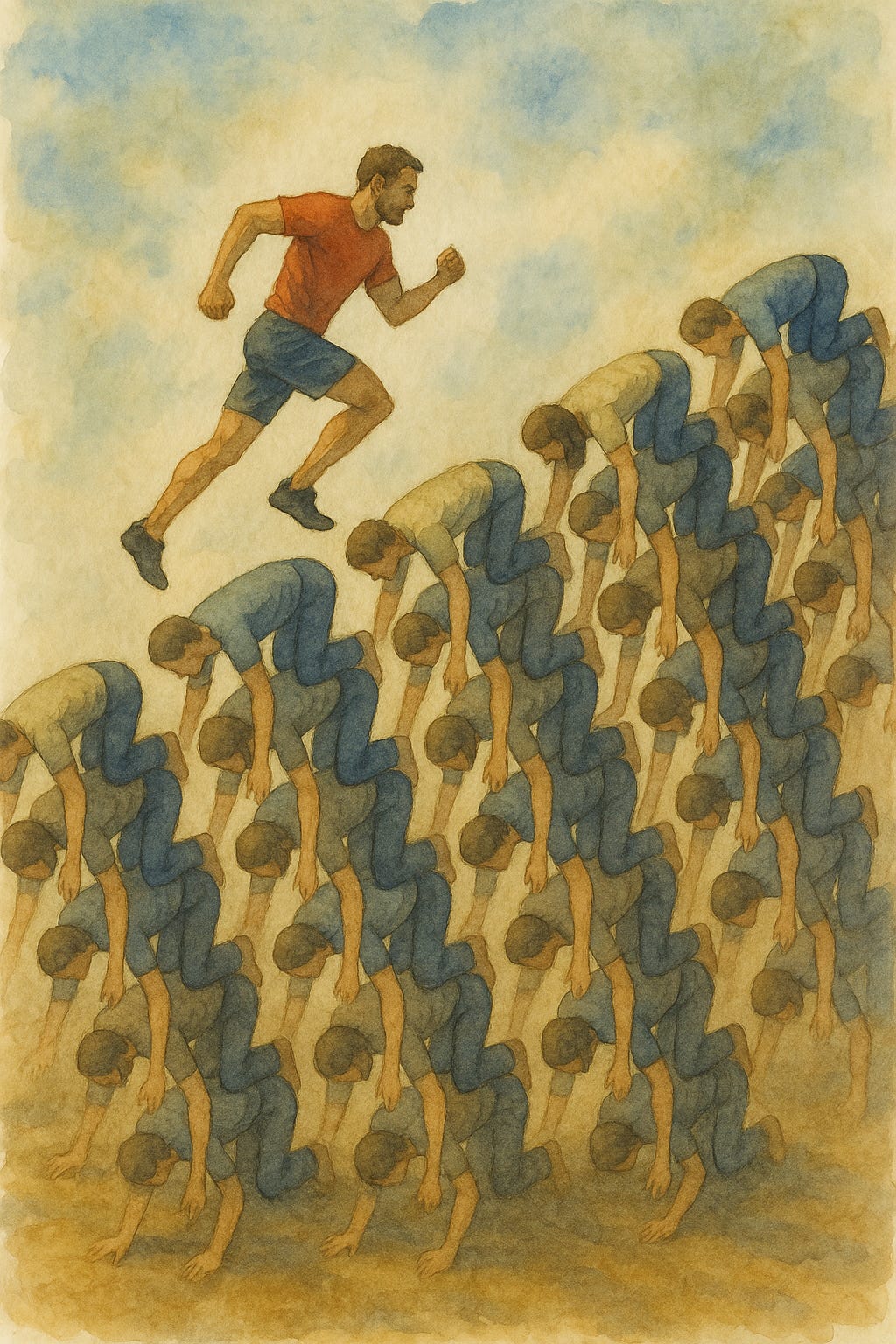Mind Candy is a newsletter on practical philosophy and human flourishment—aka how to live “the good life.” Each month we tackle a new theme.
This month we’re exploring the theme of Potential.
“Recruiting help is key to creating faster and more robust change, strengthening and training our new truthseeking routines.”
Some of us are born with talent, others are not. But regardless, in order to improve, to grow and meet our potential, we need the help of others.
While we can achieve much on our own, it’s with the assistance of others that we really shine.
Think of any professional athlete there is. All have coaches, trainers, psychologists working to help them progress.
Yet our culture has built a narrative around the dominant individual, the self made man who achieves success by bending the world to his will.
“Don’t be ashamed to need help,” Marcus Aurelius reminded himself. “Like a soldier storming a wall, you have a mission to accomplish.”
We all get to the point where we need help, where the work we’re putting in has plateaued or is beyond positive results.
If we want to maximize potential, we need the help of others.
We may already have our plan in place, we may be executing it, but there will come a time where we are no longer benefitting from the work we’re doing in isolation.
So we need others to come in and assist, see where we’re in need of improving.
We’re not the best judge of ourselves. We’re too close, we don’t have that objective analysis of our lives and actions, not the same way our closest friends, family, or colleagues do.
In order to achieve our goals, we need to review our approach and find its weak points. By doing so, we can see where we need assistance and find help.
We move past these weaknesses through scaffolding, the ability to find temporary support to bridge the gaps in our knowledge or actions, in our weaker areas, to be able to overcome our current place.
Scaffolding comes in many shapes and forms:
A book
Coach
Mentor
Friend
Group
“Since the type of scaffolding we need varies from one day to the next, we'll find support from different sources at different times for different challenges,” writes the psychologist Adam Grant in Hidden Potential. “We might look to a coach or a mentor to show us that what looks like an insurmountable block can be rotated into a stairway. We might rely on a teammate or a mentee to show us that the key missing piece is right around the corner. And we might have to work together to reach the next level when the odds are stacked against us.”
By leveraging outside assistance, we not only get an objective opinion of what we’re doing (and our blindspots), but we get to leverage the knowledge of others.
This is critical because we don’t have all the time in the world to fail or flounder endlessly. We need assistance bridging gaps in our weak areas. Coaches help point this out. Mentors help bounce ideas off of. A book teaches a lesson that can be imparted for self improvement.
If we’re open to the help, we open ourselves up to move to the next level.
“The scaffolding they provide looks and feels different depending on the type of challenge we're facing, but it has the same effect: giving us a foothold or a boost.”
Scaffolding can be thought of like Tetris according to Grant. This is because we’re constantly trying to fill in gaps that exist. The quicker we can lean into others for their knowledge, guidance, and assistance, the sooner we can solidify our footing and close our knowledge gaps.
The key, however, is to get the help ASAP when a setback hits. It’s about not allowing oneself to dwell in the endless replays of the failures, but rather, quickly see what went wrong and seek outside expertise to overcome.
But this is only useful if we hold a growth mindset, where we believe we can overcome the obstacle before us and can learn from the failure.
We must look to improve rather than give up or quit when the going gets tough.
Life is filled with endless setbacks and we can more readily overcome these setbacks if we’ve got sufficient support to lean into. By setting up our support network, we not only correct failures, we grow our knowledge and ability to perform better the next time around.
And it’s all starts with understanding it is okay and important to ask for help.
“Potential is not a matter of where you start, but of how far you travel,” writes Grant.
So the question is, how far are you willing to go?
Before you go…
If you enjoyed the above article, you may be interested in the following:
Stop Wandering and Take Action
In book 3 of the Meditations, Marcus Aurelius reminds himself of the dangers of looking too far ahead and getting lost in fantasies of the future.
Thank you for reading Mind Candy. If you enjoyed this work, please consider upgrading to a paid subscription. Or if now isn’t the right time, please share to someone who could benefit.
Until next time,
D.A. DiGerolamo
We are a participant in the Amazon Services LLC Associates Program, an affiliate advertising program designed to provide a means for sites to earn advertising fees by advertising and linking to Amazon.com.








